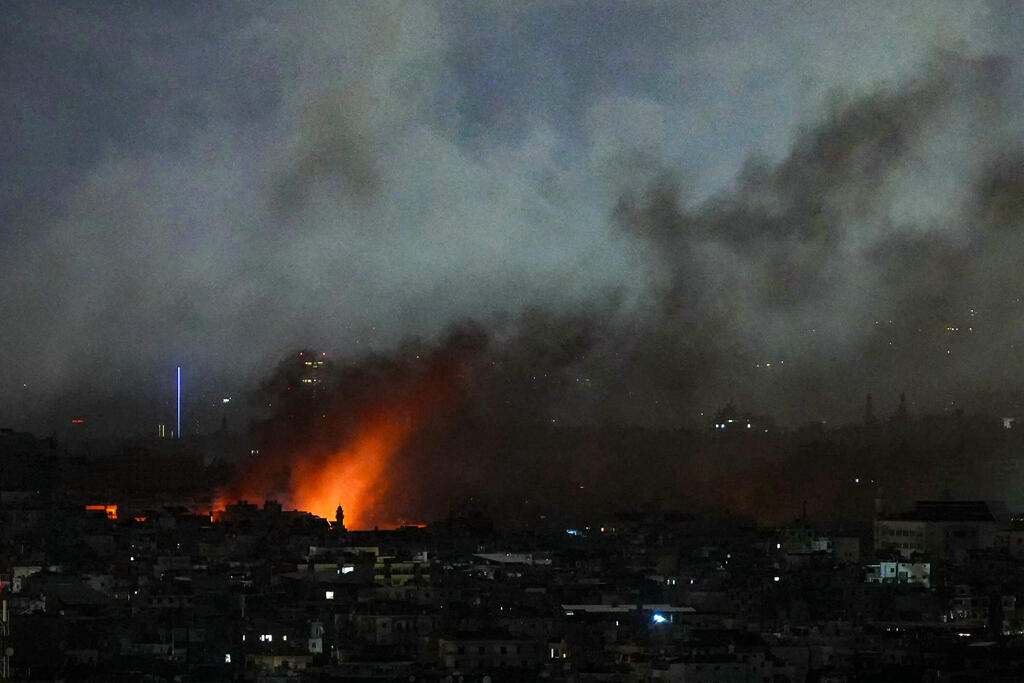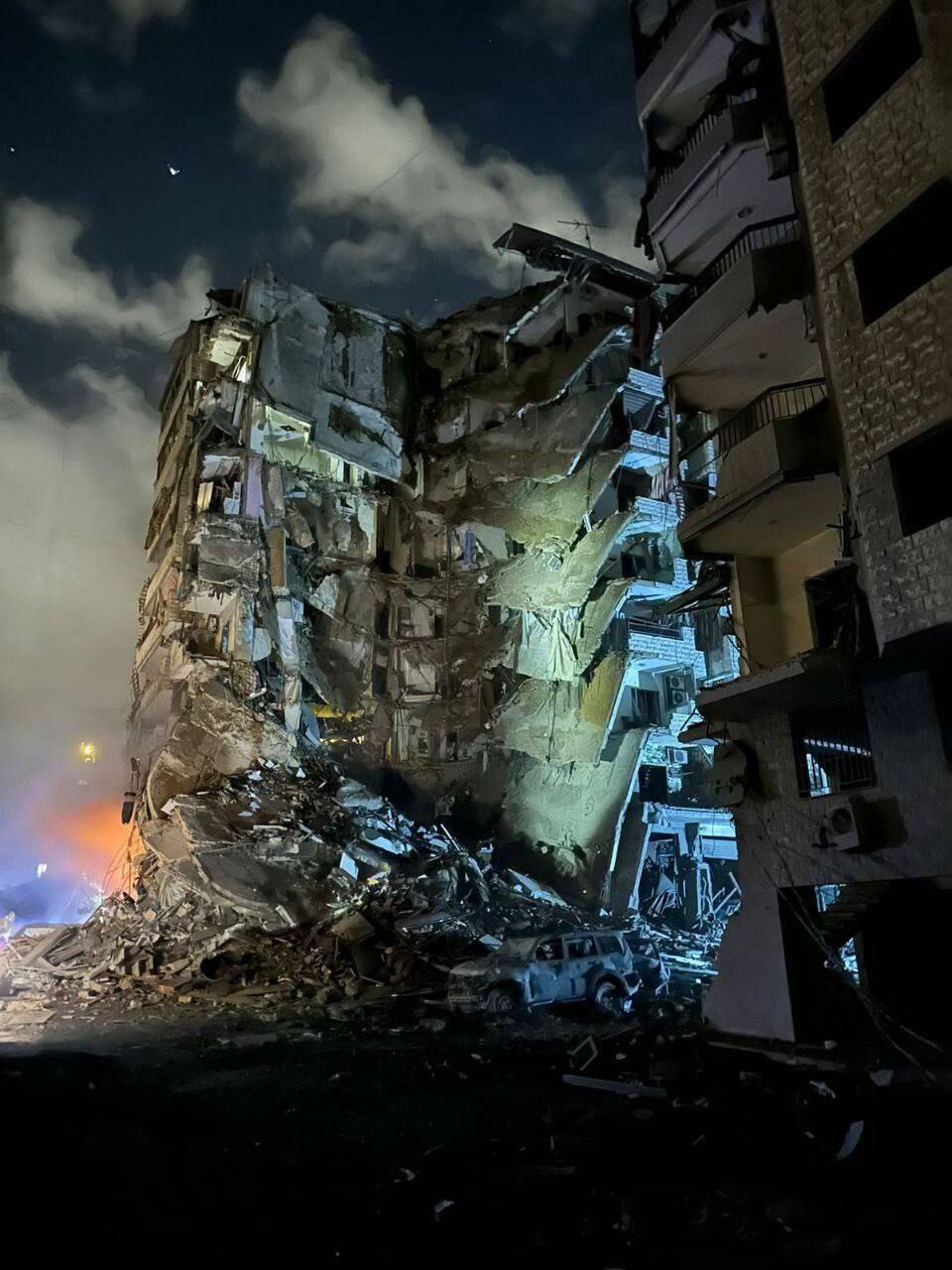Getting your Trinity Audio player ready...
Israeli, U.S. and Lebanese sources confirmed Sunday that Jerusalem has given a preliminary green light to a proposed agreement with Lebanon, subject to final approval by the Cabinet.
Responding to reports, an Israeli official said that while there is "a willingness and a general intention to move forward," some issues "remain on the table." The official added, "It’s not finalized, but the direction is positive."
5 View gallery


Prime Minister Benjamin Netanyahu, US special envoy Amos Hochstein and Hezbollah Secretary-General Naim Qassem
(Photo: Kawnat HAJU / AFP, Yariv Katz, REUTERS/Mohamed Azakir)
However, Ynet has learned that Amos Hochstein, the U.S. special envoy for the region and President Joe Biden’s emissary, informed Lebanese officials of Israel’s decision earlier in the evening.
Meanwhile, Hezbollah ramped up its rocket fire on Israel Sunday, launching over 255 projectiles since midnight, coinciding with a high-level meeting convened by Prime Minister Benjamin Netanyahu to discuss a potential cease-fire agreement in Lebanon.
Hezbollah rockets shot down over Petah Tikva, central Israel
Following the discussions, Israeli officials said there is a "real possibility" of reaching an agreement within the week, driven by an ultimatum from Hochstein. Sources familiar with the negotiations said Hochstein warned both sides that failure to finalize the deal in the coming days would prompt him to withdraw from the talks. Hochstein told Israeli officials that understandings with Lebanon are already in place, putting the onus on Israel.
U.S. officials reportedly suspect that Israeli delays may stem from political considerations. They cautioned that the matter could escalate to the UN Security Council, where the Biden administration might abstain from vetoing a cease-fire resolution, echoing a scenario from the final days of the Obama administration.
The Security Cabinet meeting included top defense officials and senior ministers, including Israel Katz, Gideon Sa’ar, Ron Dermer, Bezalel Smotrich and Itamar Ben-Gvir. Discussions focused on three key Israeli reservations about the proposed deal:
- Ensuring Israel retains operational freedom in response to violations by Lebanon.
- Clarifying language around disputed border points, an issue Israel refuses to commit to resolving.
- Limiting France’s role in enforcement mechanisms due to strained relations between Jerusalem and Paris over recent diplomatic tensions, including French support for international arrest warrants against Netanyahu and former defense chief Yoav Gallant.
Despite these disagreements, Israeli officials described them as non-essential and expressed optimism about finalizing the agreement within days. U.S. Deputy Assistant Secretary of Defense for the Middle East Dan Shapiro is expected to visit Israel on Monday to discuss the deal’s security dimensions.
Eight Israelis were injured in Sunday’s rocket barrages from Lebanon, including one person who sustained severe injuries in the northern town of Kfar Blum. Israeli security sources said the escalation by Hezbollah was anticipated as a show of force ahead of a potential truce.
Between midnight and 6:50 p.m., Israel reported 541 air raid sirens triggered by 255 Hezbollah rocket launches—the highest number since the war began, excluding September 28, when 771 sirens were activated following the assassination of Hezbollah leader Hassan Nasrallah, though with fewer rocket launches.
Hezbollah appears to be emphasizing its leader Naim Qassem’s “Beirut-Tel Aviv” equation, a slogan aimed at mirroring Nasrallah’s deterrence doctrine. The group released an AI-generated image warning, “What applies to Beirut applies to Tel Aviv.”
5 View gallery


Hezbollah releases AI-generated image warning, 'What applies to Beirut applies to Tel Aviv'
In response, the IDF issued a sharp warning to Hezbollah through its Arabic-language spokesperson, Lt. Col. Avichay Adraee. “Anyone who thinks they are in a position to impose conditions should stop relying on Hezbollah’s media mouthpieces for news,” Adraee said. “Take a tour of Dahieh today and especially tonight, and you’ll understand,” he added, referring to Beirut's southern suburb where the terrorist group has a strong presence.
Shortly after, Israel launched a series of airstrikes on Hezbollah's stronghold in Dahieh. The IDF confirmed it struck 12 Hezbollah military command centers, guided by intelligence operations. Targets included Hezbollah’s intelligence headquarters, the group’s coastal missile unit and Unit 4400, which facilitates the transfer of weapons from Iran through Syria to Lebanon.
Aftermath of Israeli airstrikes in Beirut's Dahieh district
The military said that the command centers targeted were used for planning and executing terrorist operations against Israeli civilians and IDF forces in southern Lebanon. “These strikes are a key element in the IDF’s effort to degrade Hezbollah’s capabilities to carry out various terror attacks against Israel,” the statement added.
While negotiations continue, Israel reportedly intends to expand its strikes on Beirut to further weaken Hezbollah’s operational capacity. Despite the increased intensity of Hezbollah's rocket fire in recent days, a senior official familiar with the situation suggested that the escalation indicates progress toward a cease-fire rather than a retreat from it.
More than 150 Hezbollah targets raided
Earlier Sunday, the IDF reported that Israeli forces launched a large-scale assault on more than 150 Hezbollah targets in southern Lebanon. The operation involved troops from the Golani Brigade, the 188th Armored Brigade, the 282nd Fire Brigade and the elite Yahalom combat engineering unit, operating under the command of the 36th Division.
According to the military, dozens of Hezbollah terrorists were eliminated in air attacks and direct clashes. Forces also uncovered and destroyed weapons stockpiles, rocket launchers, underground tunnels and combat sites that posed significant threats to Israeli communities.
Get the Ynetnews app on your smartphone: Google Play: https://bit.ly/4eJ37pE | Apple App Store: https://bit.ly/3ZL7iNv
"Troops from the 188th Brigade have established operational control in the area, eliminating numerous terrorists and dismantling dozens of weapons caches, hundreds of buildings and terror-related infrastructure," the military said in a statement.
The Golani Brigade, meanwhile, conducted extensive operations in villages and rugged terrain in southern Lebanon, eliminating Hezbollah terrorists and targeting the group's terror capabilities. Yahalom operatives uncovered and destroyed key Hezbollah underground facilities filled with weaponry and combat equipment.
The 282nd Fire Brigade crossed into Lebanon for the first time in 24 years, launching attacks from Lebanese territory in conjunction with dozens of strikes targeting Hezbollah positions.








